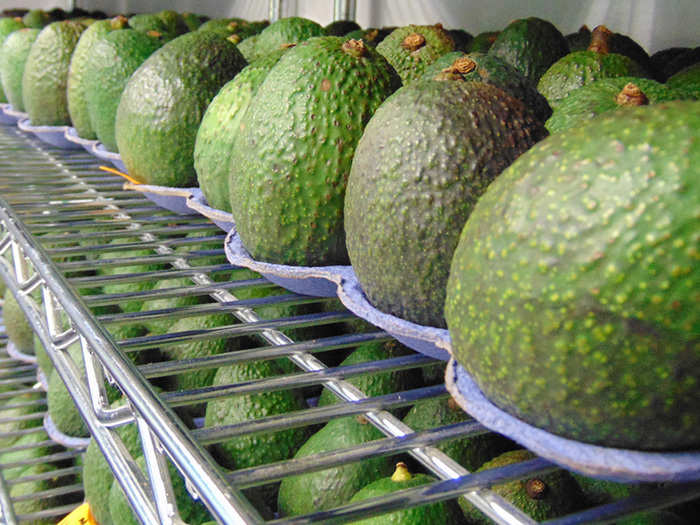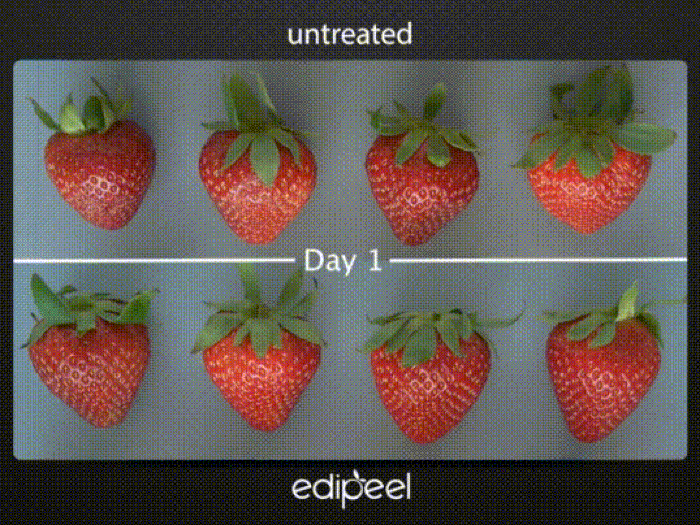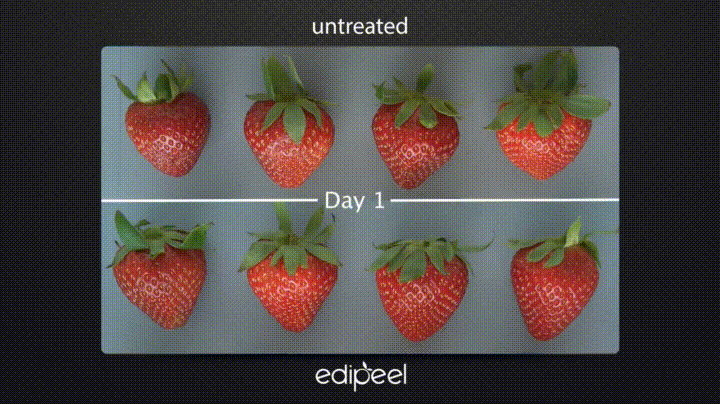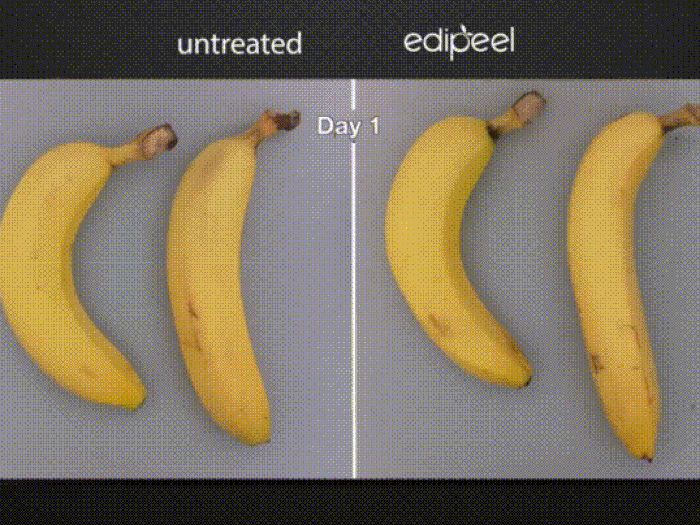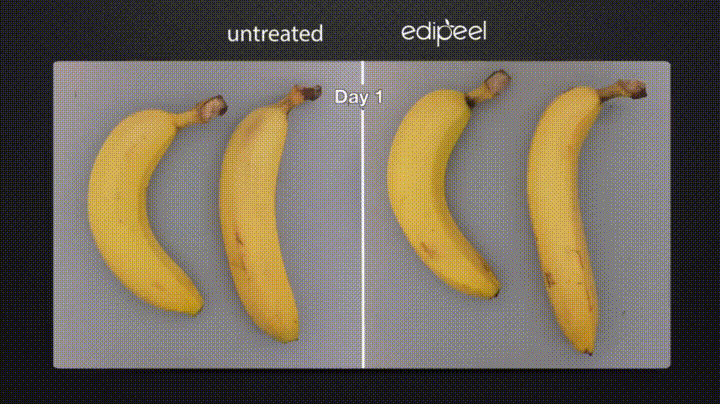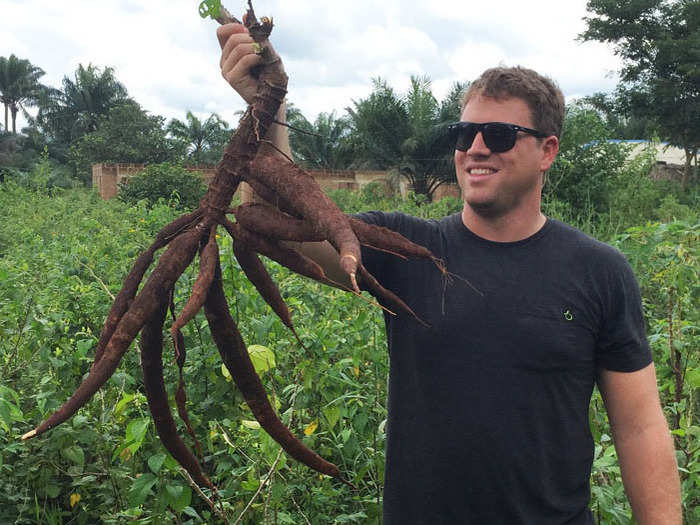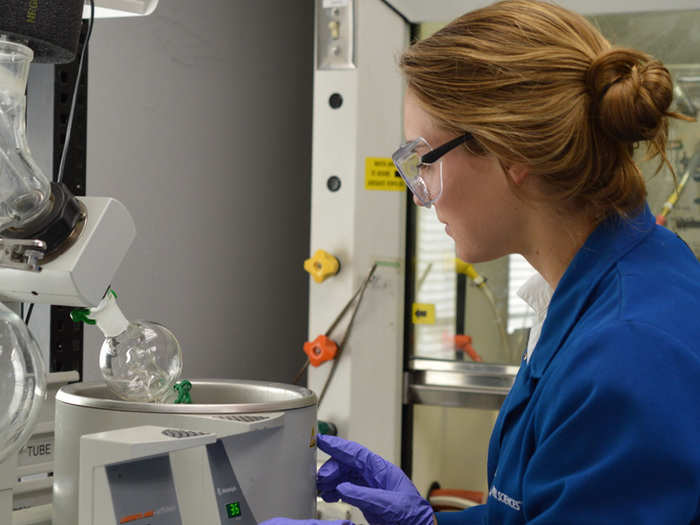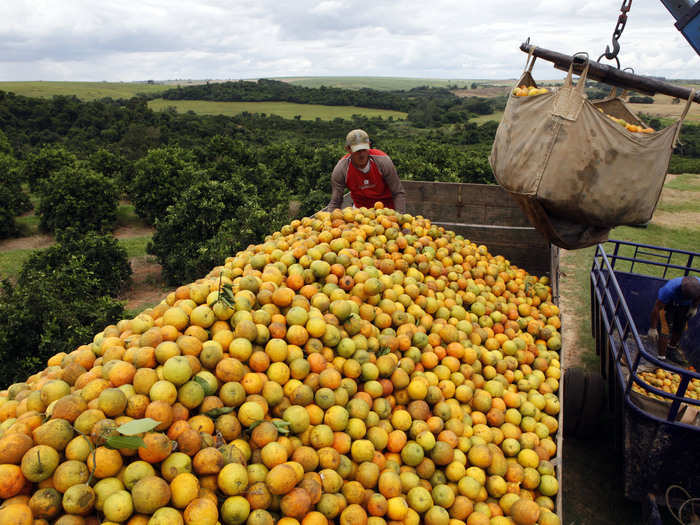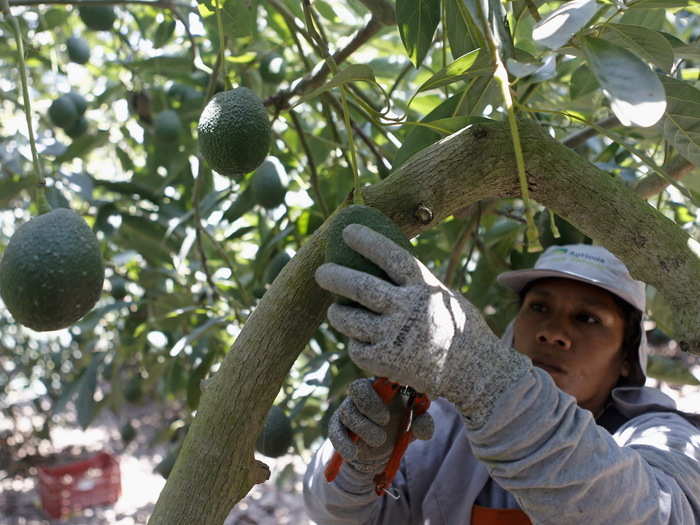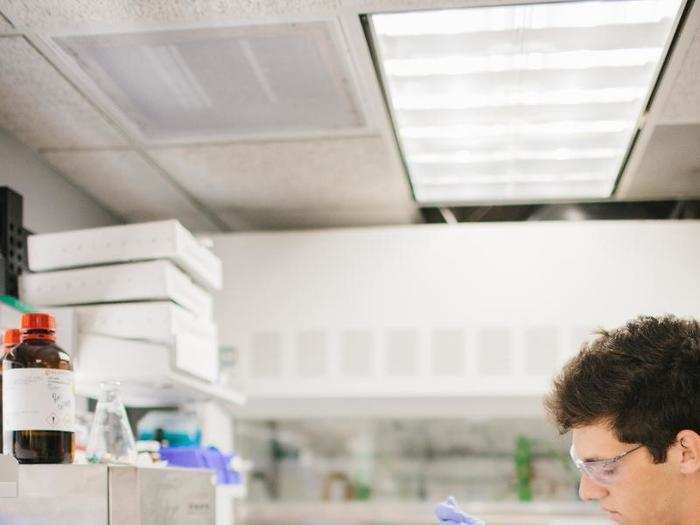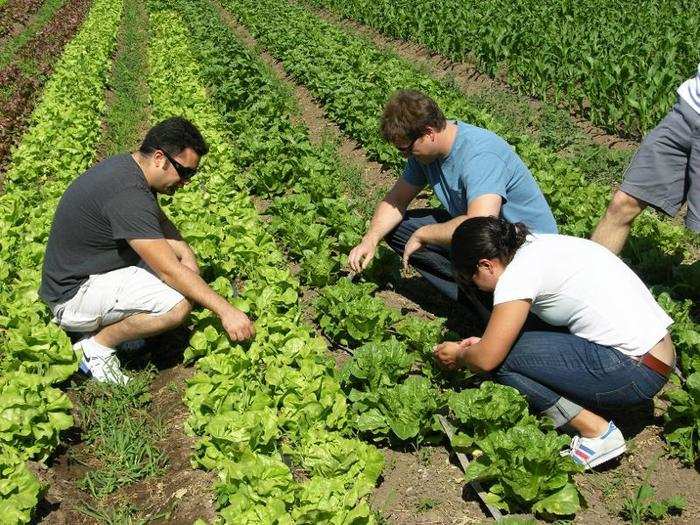The untreated green beans on the left shrivel up after just a few days, while the Edipeel ones stand strong:

Produce with Apeel's products can last an extra two to five days without refrigeration before it starts to rot too, Rogers says. The startup — first spotted by The New York Times — is also testing on avocados, tomatoes, and leafy greens.
The coatings are made from molecules of the discarded materials from organic produce — anything from pear stems to leftover grape skins from wine fermentation to grass clippings.
"We don't discriminate," Rogers says.
The coating could allow grocery stores and restaurants to source from farms that are further away, while avoiding waste from produce that has ripened too quickly.
For example, it takes 30 days for Chile-grown blueberries to travel to US grocery stores. To keep them fresh, farmers will often coat them in wax and pick them before they're ripe. Trucks also need to heavily refrigerate them (which requires energy and money).
Since Apeel's plant-based products control the rate of decay, they offer a non-GMO solution to preserving produce.
Rogers began to think about stainless steel, which includes a carbon and iron barrier that keeps the metal from rusting. He then wondered if he could use the same strategy to protect produce. "That was the genesis of Apeel," he says.
Apeel aims to sell its products for a price higher than normal produce, but lower than organic, Rogers says. The products could help reduce farming and transportation costs, thus lowering produce's costs.

